There are many exotic buildings in the heart of Seoul that combine Western architectural elements and traditional Korean materials, providing a glimpse into the country’s history of diplomatic and cultural exchanges.
Located right next to Deoksugung in central Seoul is a plot of land belonging to the UK, which British Deputy Ambassador to Korea Nik Mehta proudly said was the most beautiful diplomatic compound here.
Walking to the back of Aston Hall, the main hall inside the office building of the British Embassy in Seoul, a pub greets visitors -- the Broughton’s Club, a tavern named after a British Royal Navy officer who first discovered Korea in 1797 during his sea voyage.
The bar, filled with illuminated bottles of gin and whisky, is where British diplomats and citizens living in Seoul as well as their partners and friends get together on Friday evenings to socialize and build networks.
When a bell rings, it means it is time for the last order, Mehta said, as he showed a group of reporters around the British Embassy on Thursday.
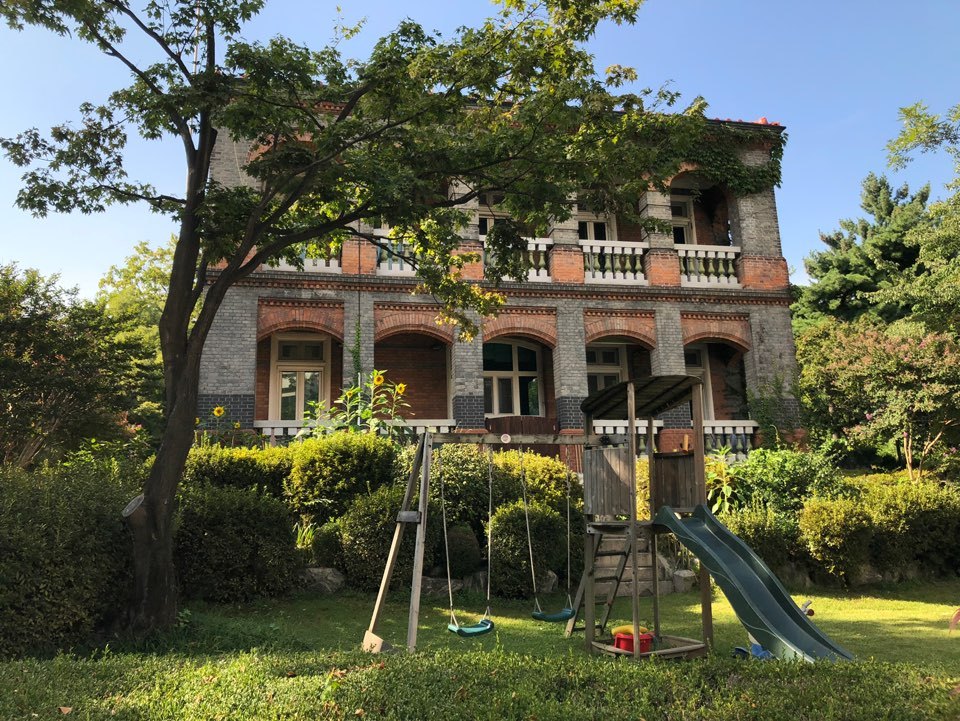 |
The original UK Embassy building (Ock Hyun-ju/The Korea Herald) |
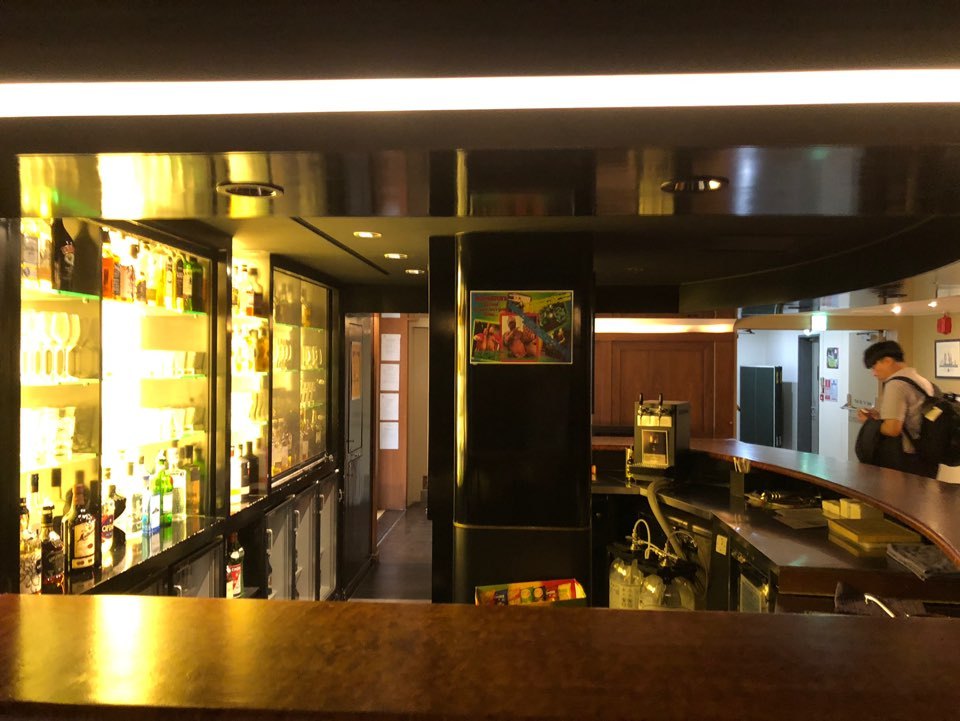 |
The Broughton’s Club (Ock Hyun-ju/The Korea Herald) |
Passing the modern-day bar, there is the oldest legation building in Korea -- the Victorian-style, two-story original embassy building. Behind it is the ambassador‘s residence, sitting next to a front yard used for diplomatic events, including a banquet to celebrate the birthday of Queen Elizabeth in May.
The UK Embassy like five others -- US, Canada, France, Switzerland and Egypt -- are open to the public for tours as part of the Seoul Biennale of Architecture and Urbanism, an international arts exhibition hosted by the Seoul Metropolitan Government.
Together with nonprofit organization Open House Seoul, the city is running the program, themed “Another Territory of Seoul,” from Friday to Sept. 29, giving citizens a rare opportunity to explore embassies, learn about the history and culture behind them as well as Korea’s diplomatic ties with the countries.
Walking along the wall of Deoksugung leads you to the US ambassador’s residence, Habib House, which was rebuilt in 1976 after the original structure could no longer be repaired.
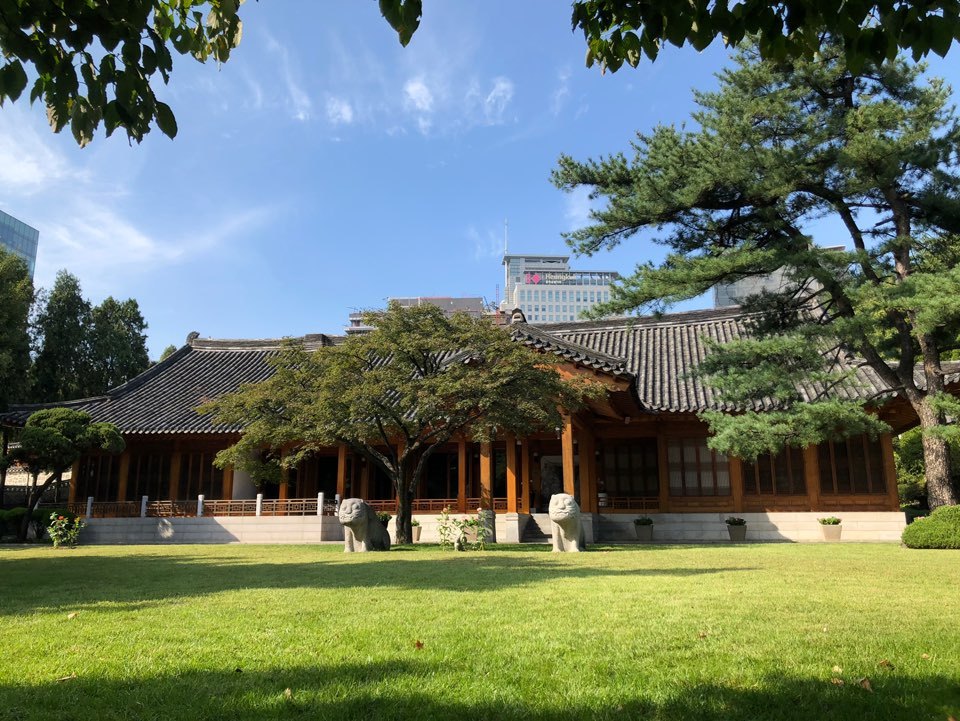 |
Habib House, residence of the US ambassador to Korea (Ock Hyun-ju/The Korea Herald) |
The modern form of the residence retains much of the original building’s distinctly Korean character, such as elements of a Korean bungalow, mulberry paper windows and thick wooden columns, reflecting the vision of Habib. Habib, then the top diplomat to Seoul, insisted on a traditional Korean design while preserving the quality workmanship of the original building.
At the French Embassy, the tour will be the last chance to see the existing structure designed by Kim Chung-up, a renowned late Korean architect, as work on renovation and expansion will begin next year.
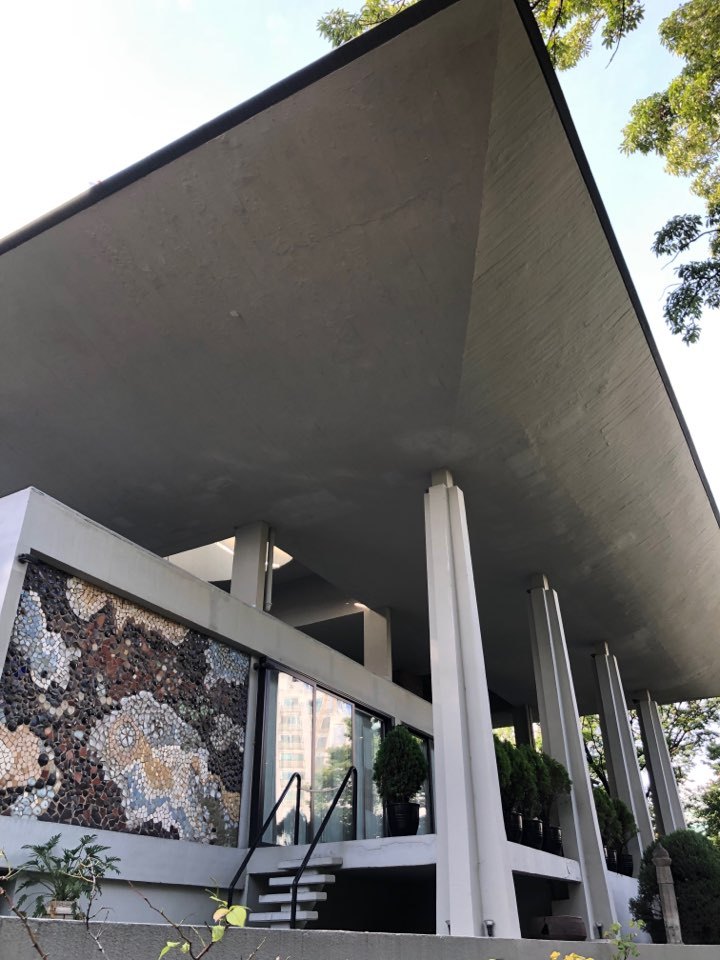 |
French Embassy (Ock Hyun-ju/The Korea Herald) |
Completed in 1962, the French Embassy building is highly regarded as one of the masterpieces of Korea’s modern architecture for its contemporary interpretation of the traditional Korean house structure.
The embassy’s roof has upward curving edges at the four corners, which symbolize a Korean traditional house lightly supporting the sky. Instead of using ceramic roof tiles, known as giwa, modern construction materials, like concrete, were used for the building.
Meanwhile, the latest modern interpretation of Korean-style housing can be seen at the new Swiss Embassy that opened in May after years-long renovation.
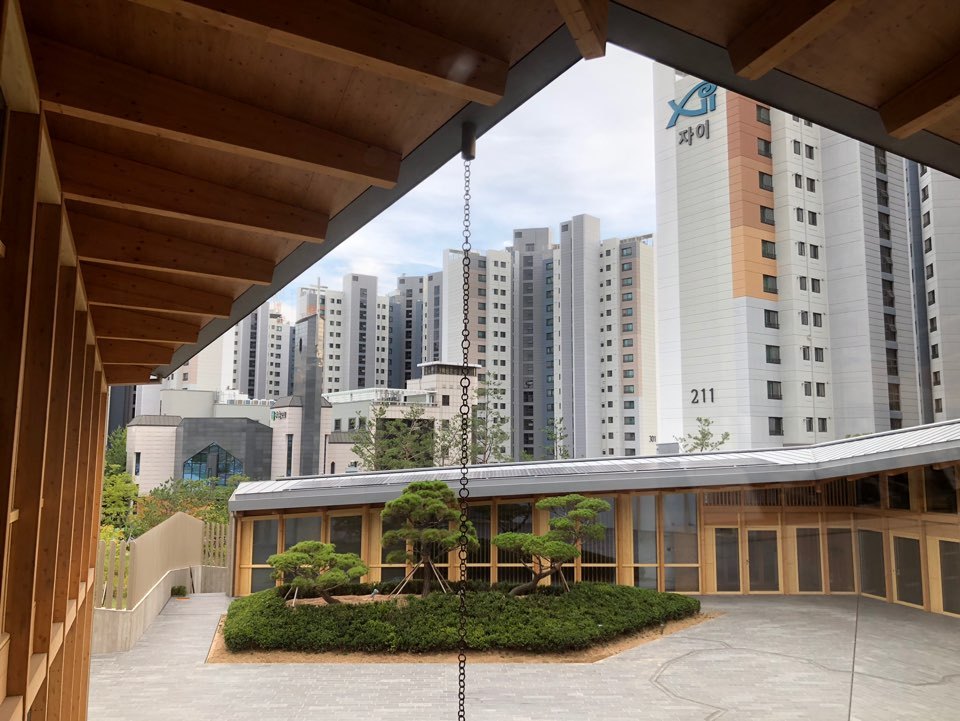 |
Swiss Embassy (Ock Hyun-ju/The Korea Herald) |
Surrounded by tall apartment buildings, the spiral form of the three-story complex sits like an island in the forest of buildings, with its low roof and a large open courtyard in the center giving off a contrasting vibe.
Its wide courtyard symbolizes openness and integration, reflecting the Swiss Embassy’s aspiration to reach out to the Korean public, according to the embassy. It holds a variety of events, including exhibitions and performances, all year round.
(
laeticia.ock@heraldcorp.com)












![[Today’s K-pop] Blackpink’s Jennie, Lisa invited to Coachella as solo acts](http://res.heraldm.com/phpwas/restmb_idxmake.php?idx=644&simg=/content/image/2024/11/21/20241121050099_0.jpg)